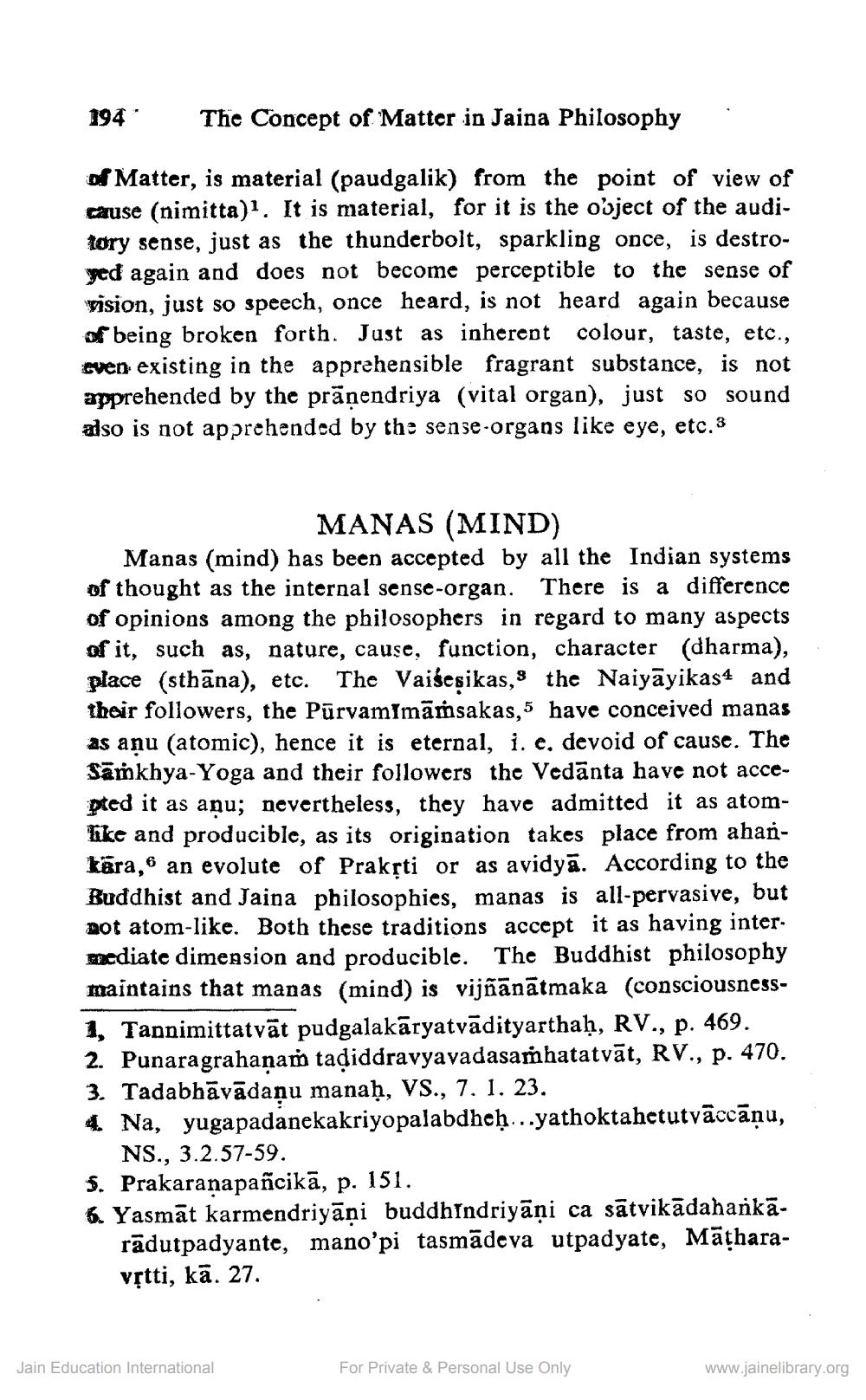________________
194
The Concept of Matter in Jaina Philosophy
.
of Matter, is material (paudgalik) from the point of view of cause (nimitta)". It is material, for it is the object of the auditory sense, just as the thunderbolt, sparkling once, is destroyed again and does not become perceptible to the sense of vision, just so speech, once heard, is not heard again because of being broken forth. Just as inherent colour, taste, etc., even existing in the apprehensible fragrant substance, is not apprehended by the prāņendriya (vital organ), just so sound also is not apprehended by the sense-organs like eye, etc.3
MANAS (MIND) Manas (mind) has been accepted by all the Indian systems of thought as the internal sense-organ. There is a difference of opinions among the philosophers in regard to many aspects of it, such as, nature, cause, function, character (dharma), place (sthāna), etc. The Vaišeşikas, 8 the Naiyāyikas4 and their followers, the PūrvamImāmsakas, 5 have conceived manas as aņu (atomic), hence it is eternal, i. e, devoid of cause. The Sankhya-Yoga and their followers the Vedānta have not accepted it as anu; nevertheless, they have admitted it as atomlike and producible, as its origination takes place from ahankära, 6 an evolute of Prakrti or as avidyā. According to the Buddhist and Jaina philosophies, manas is all-pervasive, but not atom-like. Both these traditions accept it as having intermediate dimension and producible. The Buddhist philosophy maintains that manas (mind) is vijñānātmaka (consciousness1, Tannimittatvāt pudgalakāryatvādityarthaḥ, Rv., p. 469. 2. Punaragrahaņas tadiddravyavadasaṁhatatvāt, RV., p. 470. 3. Tadabhāvādaņu manaḥ, VS., 7. 1. 23. 4. Na, yugapadanekakriyopalabdheḥ...yathoktahetutvāccāņu,
NS., 3.2.57-59. 5. Prakaranapañcikā, p. 151. 6. Yasmāt karmendriyāni buddhindriyāni ca sātvikādahankā.
rādutpadyante, mano'pi tasmādeva utpadyate, Māțharavịtti, kā. 27.
Jain Education International
For Private & Personal Use Only
www.jainelibrary.org




